Publikace
> Články v impaktovaných časopisech
> 'Energy resolution and power consumption of Timepix detector for different detector settings and saturation of front-end electronics'
Energy resolution and power consumption of Timepix detector for different detector settings and saturation of front-end electronics
Autor
| Kroupa Martin | University of Houston |
| Hoang S | University of Houston |
| Stoffle Nicholas | University of Houston |
| Soukup Pavel, Ing. Ph.D. | UTEF |
| Jakůbek Jan, Ing. Ph.D. | UTEF |
| Pinsky Lawrence | University of Houston |
Rok
2014
Časopis
JINST
Web
Obsah
An ongoing research project in the area of radiation monitoring employing the Timepix technology from the CERN-based Medipix2 Collaboration profits greatly from optimizing the precision of the position and energy information obtained for the detected quanta. Wider applications of the Timepix technology as a radiation monitor also puts new demands on the precision and speed of the energy calibration. We compare the analog signal in pixel front-end electronics for different sources used during detector evaluation and energy calibration. We use the direct measurement of the analog signal from the pixel preamplifier and comparator to characterize pulse shape differences for different sources, e.g. internal test pulses, external test pulses, ionizing radiation, etc. and study their interchangeability.
Accurate per-pixel energy calibration of the Timepix detector enables the direct measurement of the energy deposited by different types of ionizing radiation. The energy calibration process requires the application of a known charge to front-end electronics of each pixel. The small pixel size limits use of the radioactive sources. The 59.54 keV line from 241Am is commonly used as the highest point in calibration curve. The heavy ion dosimetry as encountered in the space radiation environment requires a considerable extrapolation to the energies in the MeV range. We have observed that for energies around and beyond 1 MeV the response of the Timepix's front-end electronics no longer follows the extrapolated calibration function. We have investigated this non-linearity and identified its source. We also propose both hardware and software solutions to suppress this effect.
In this paper we show the impact on pixel calibration and the subsequent energy resolution for different detector settings as well as the resulting power consumptions. We discuss the parameter optimization for several different real-world applications.
Příklad citace článku:
M. Kroupa, S. Hoang, N. Stoffle, P. Soukup, J. Jakůbek, L. Pinsky, "Energy resolution and power consumption of Timepix detector for different detector settings and saturation of front-end electronics", JINST (2014)
Hledat
Události
21.-22. 11. 2014
Seattle, USA
8-15 Nov 2014
Surrey, Velká Británie
8. září 2014
9. září 2014
24. 4. 2014
3. 4. 2014
Seoul, Korea
27 Oct - 2 Nov 2013
Paris
23-27 June 2013
Anaheim, USA
29 Oct - 3 Nov 2012






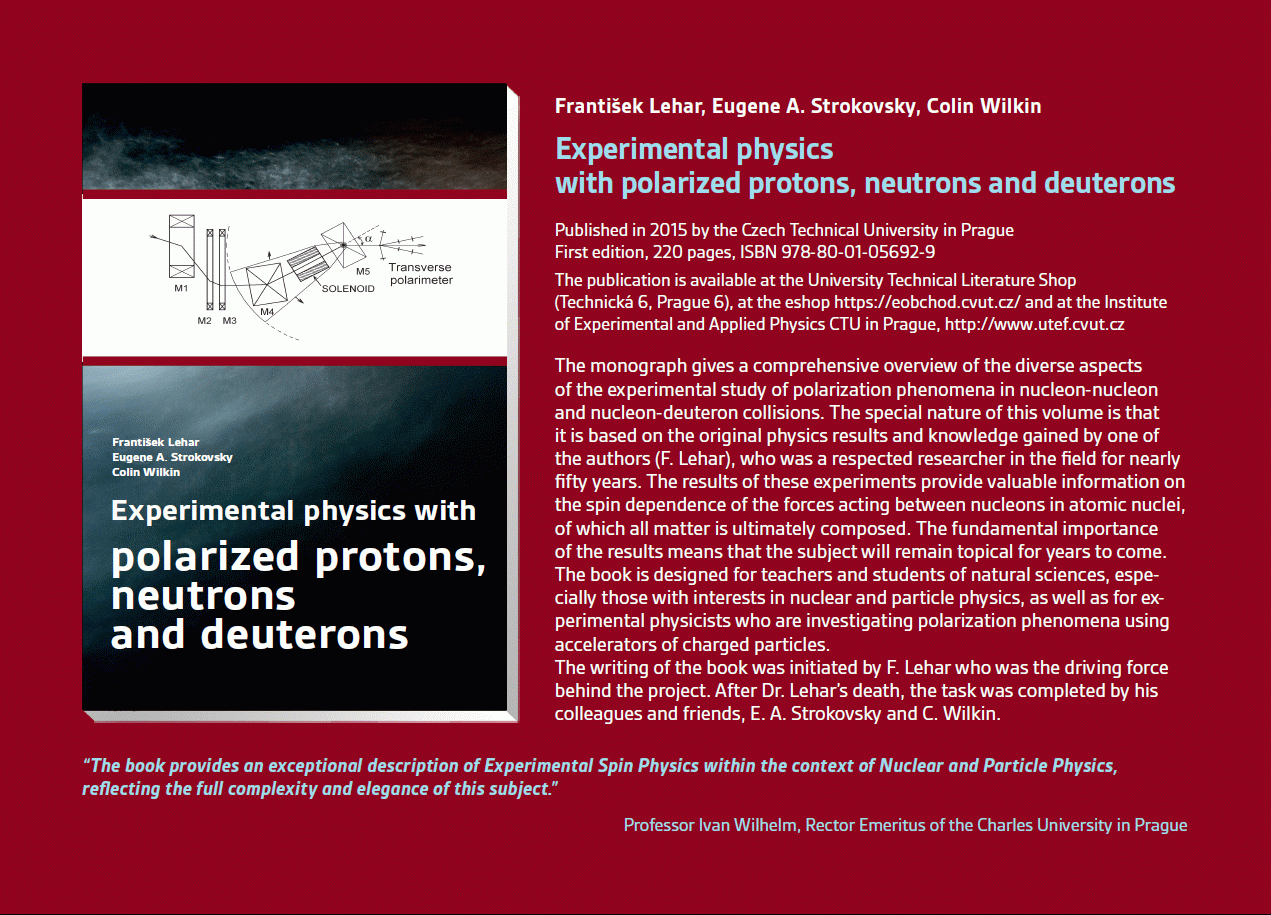 Experimental physics
with polarized protons, neutrons and deuterons
Experimental physics
with polarized protons, neutrons and deuterons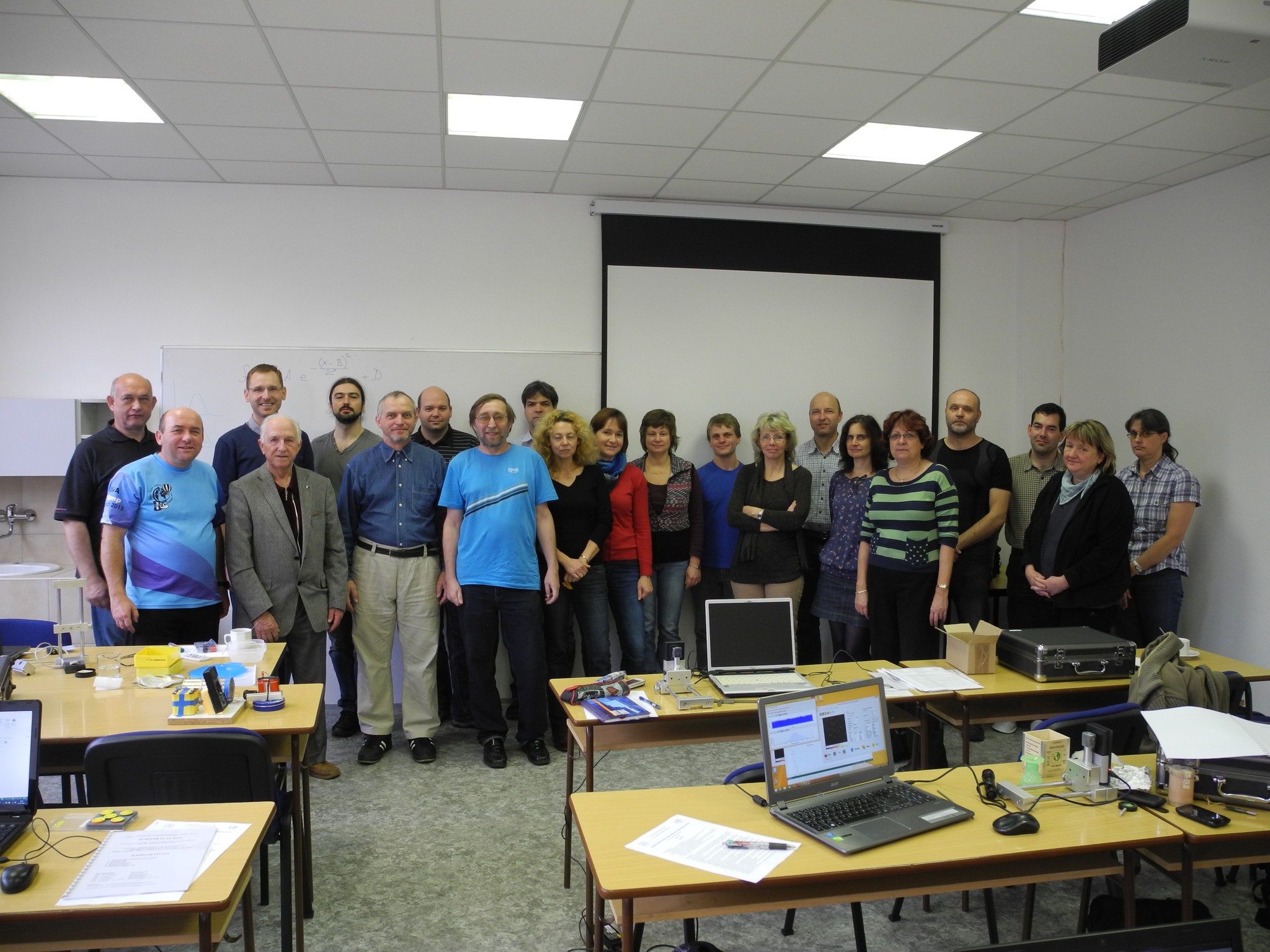 Progresivní detekční metody ve výuce subatomové a částicové fyziky
na ZŠ a SŠ
Progresivní detekční metody ve výuce subatomové a částicové fyziky
na ZŠ a SŠ NSS MIC IEEE Conference
NSS MIC IEEE Conference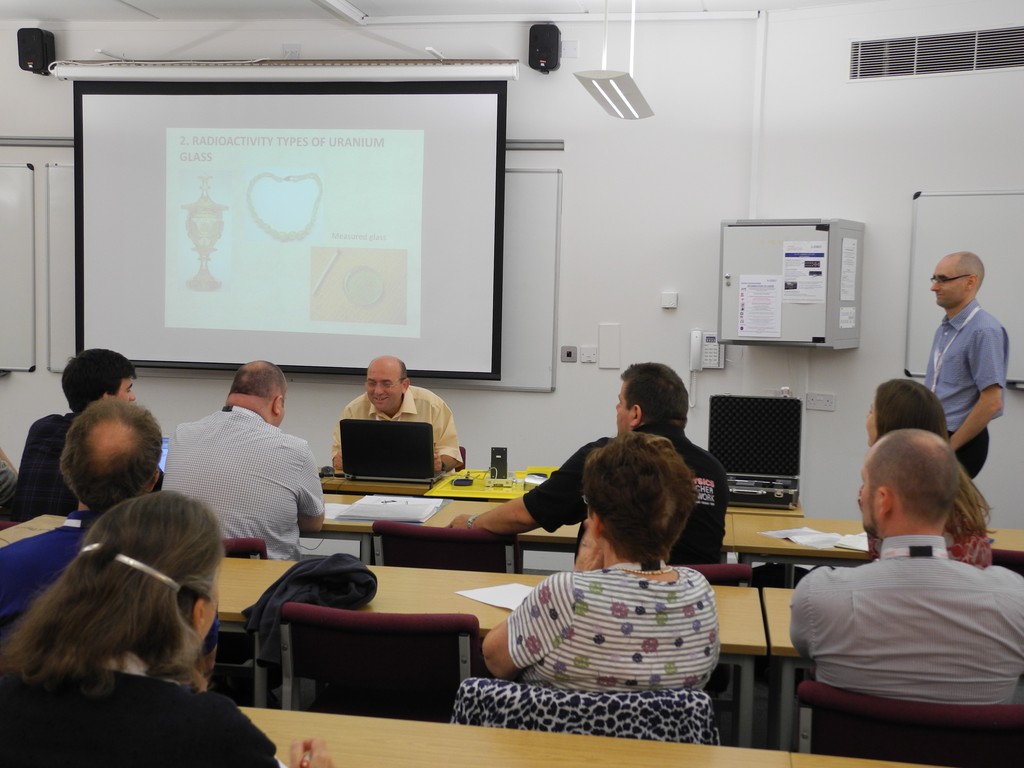 Konference SEPnet, CERN@school
Konference SEPnet, CERN@school Lovci záhad - spolupráce ČT a ÚTEF
Lovci záhad - spolupráce ČT a ÚTEF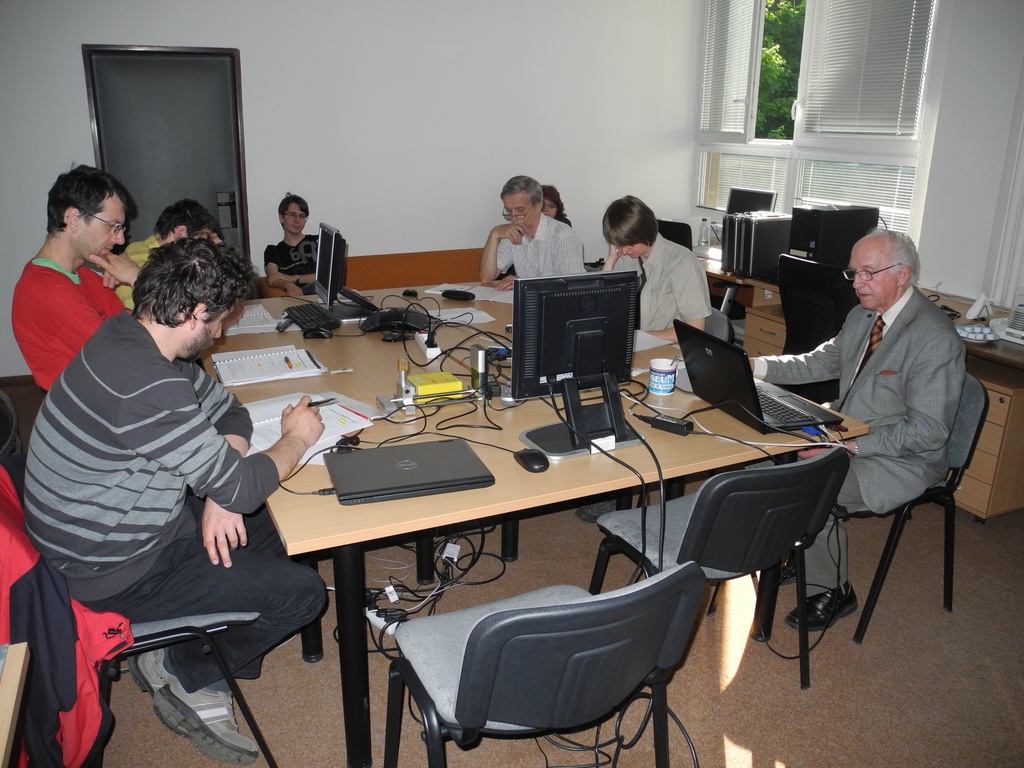 Progresivní detekční metody ve výuce subatomové a částicové fyziky na ZŠ a SŠ
Progresivní detekční metody ve výuce subatomové a částicové fyziky na ZŠ a SŠ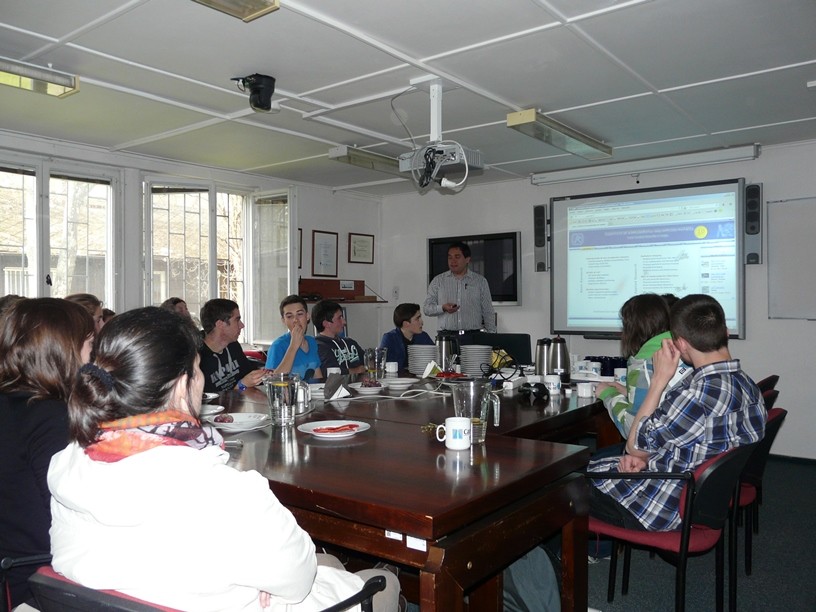 Návštěva v rámci projektu „Listening to the universe by detection cosmic rays“
Návštěva v rámci projektu „Listening to the universe by detection cosmic rays“ NSS MIC IEEE Conference
NSS MIC IEEE Conference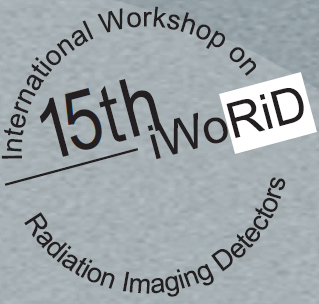 15thIWORID
15thIWORID NSS MIC IEEE Conference
NSS MIC IEEE Conference